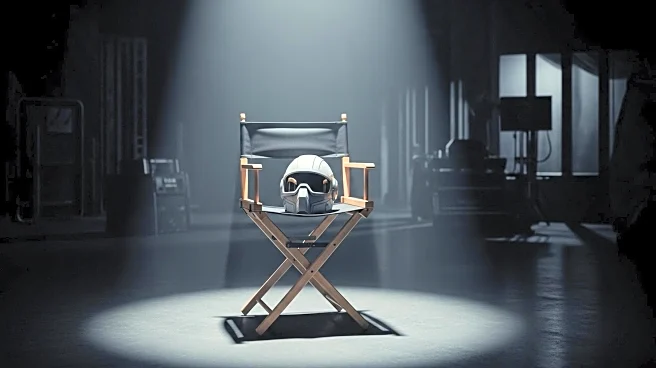What's Happening?
Steven Spielberg, the renowned Oscar-winning director, expressed interest in directing a Call of Duty movie, but negotiations with Activision fell through due to his desire for total creative control. Spielberg, who has a history with video game adaptations, including producing the Halo TV series and creating the Medal of Honor series, sought to direct the film through his Amblin production company. He reportedly partnered with Universal film boss Jimmy Horowitz to pitch the project to Activision. However, Spielberg's demands for a top-of-market economic deal, full control over production and marketing, and final cut privileges were considered excessive by Activision, leading to the project's collapse. Despite Spielberg's involvement, a Call of Duty movie is now being developed by Paramount, with David Ellison of Skydance overseeing the adaptation.
Why It's Important?
The rejection of Spielberg's proposal highlights the complexities and challenges in adapting popular video game franchises into films. Spielberg's demands for creative control reflect the high stakes involved in such adaptations, where directors seek to maintain artistic integrity while studios aim for commercial viability. The decision by Activision to pass on Spielberg's vision underscores the importance of balancing creative freedom with business interests. As Paramount takes over the project, the adaptation of Call of Duty could significantly impact the film industry, potentially setting a precedent for future video game-based movies. The involvement of major studios like Paramount and Skydance indicates the growing interest in capitalizing on the popularity of video games in cinematic formats.
What's Next?
With Paramount now developing the Call of Duty movie, the next steps involve finalizing the director and cast for the film. David Ellison's approach, which offers Activision more control over the process, suggests a collaborative effort to ensure the adaptation aligns with the franchise's established brand. As the project progresses, stakeholders will likely focus on creating a faithful representation of the game that appeals to both fans and general audiences. The potential success of the Call of Duty movie could lead to further adaptations of video game franchises, influencing the strategies of studios and production companies in the entertainment industry.
Beyond the Headlines
The situation raises questions about the balance between creative control and commercial interests in the film industry. Spielberg's demands for final cut privileges highlight the tension between artistic vision and studio oversight, a common issue in Hollywood. The rejection of his proposal may also reflect broader industry trends where studios prioritize financial considerations over creative autonomy. Additionally, the development of a Call of Duty movie by Paramount could influence the cultural perception of video games, potentially elevating their status as viable sources for cinematic storytelling.










